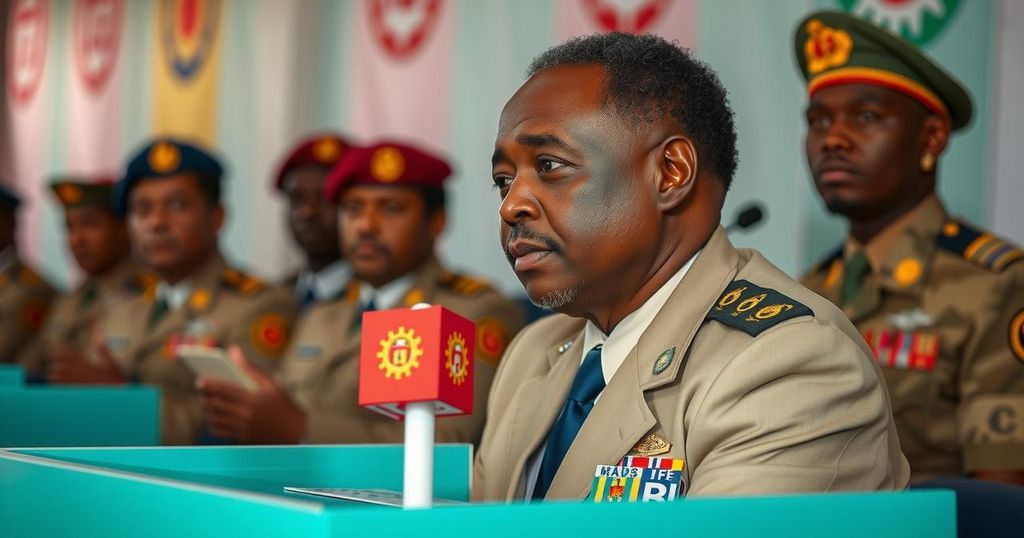Chad conducts legislative, provincial, and local elections after three years of military rule, boycotted by the opposition due to alleged electoral fraud. Despite assurances of a political transition, the ruling party faces accusations of repression and mismanagement as regional conflicts persist.
Chad is conducting elections on a Sunday for legislative, provincial, and local positions, marking a return to the polls after three years of military governance. However, the elections are marred by an opposition boycott, primarily due to allegations claiming that the previous presidential election was fraudulent. The ruling faction led by Marshal Mahamat Idriss Itno is expected to dominate the electoral landscape, significantly reducing the influence of dissenting voices. Meanwhile, there are reports of missing ballots amidst growing claims of electoral fraud.
The polls aim to provide a pathway toward democratic governance in Chad following the military takeover and a series of postponed elections since 2011 due to various crises, including jihadist threats. The controversial ascent of Itno to power after his father’s death has led to accusations of an increasingly oppressive regime. Opposition leader Succes Masra has condemned the current system as built on deception, urging citizens to refrain from participating in what he deems a charade. Amid heightened tensions from ongoing regional conflicts and a restricted media environment, the legitimacy of the elections remains in question.
Chad’s current political climate is shaped by a three-year military rule that has fostered widespread criticism from opposition groups. Marshal Mahamat Idriss Itno, who took power after his father Idriss Déby Itno’s death, has faced allegations of electoral misconduct following a contested election in May. This political backdrop informs the broader context of today’s elections, intended to signal a transition back to democratic processes. However, with the opposition boycotting these elections, their efficacy and legitimacy are further compromised.
In summary, Chad’s elections unfold amid significant challenges, with allegations of electoral fraud hindering the legitimacy of the process. The opposition’s boycott underscores widespread dissatisfaction with the ruling regime, and ongoing conflicts in the region only exacerbate the situation. As citizens cast their votes, the eyes of domestic and international observers remain vigilant, questioning the future of democracy in Chad.
Original Source: www.france24.com






